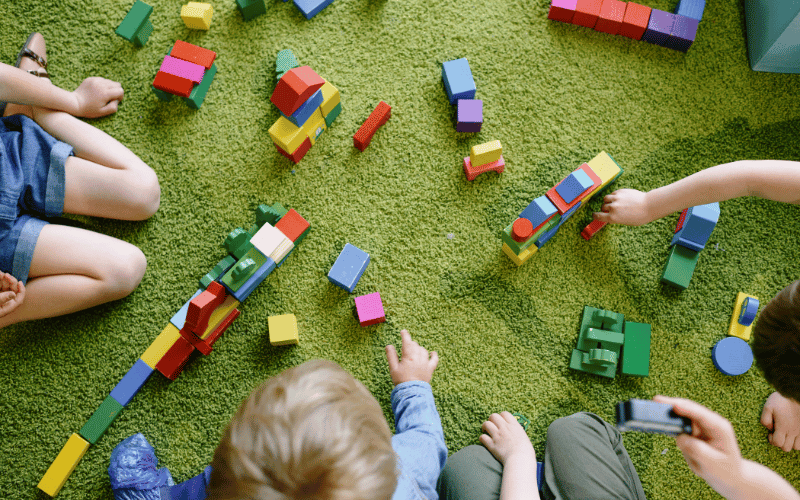Introduction: The Game-Changing Role of Playtime
Playtime is no child’s folly. It’s a pivotal component in the growth and development of children, shaping their physical, emotional, and psychological well-being. When it comes to our little ones’ mental health, unstructured playtime is not just a time-killer; it’s a powerhouse that fuels their cognitive, creative, and social capacities.

Unleashing Creativity: The Magic of Unstructured Play
Fostering a child’s creativity often begins in the sandbox, not the classroom. Unstructured play, unlike its structured counterpart, hands the reins over to children, allowing them to dictate the rules, pace, and course of their play. This freedom is a fertile ground for imagination, a place where children can weave their own narratives and explore new ideas.
Social Skills and Emotional IQ: Learning from Play
The playground is the first social network many children encounter. Here, they learn to share, communicate, negotiate, and empathize, sharpening their social skills and emotional intelligence. Unstructured playtime facilitates these crucial life lessons, fostering resilience and adaptability in the face of real-world challenges.
Stress-Busters: The Therapeutic Role of Unstructured Playtime
In a world that often hurries children into adulthood, unstructured playtime serves as a welcome pause. It’s a buffer against stress, anxiety, and negative emotions. Playtime is an emotional outlet for kids, a safe space where they can express their feelings and thoughts freely.
Cognitive Development: How Playtime Boosts Brain Power
The mental workout that unstructured play provides cannot be underestimated. It enhances memory, focus, and problem-solving skills, paving the way for academic success. By engaging in play, kids exercise their minds just as much as their bodies.
Unstructured Play: A Pathway to Self-discovery
Unstructured playtime is also a journey of self-discovery. It provides children an opportunity to explore their interests, strengths, and weaknesses. By allowing kids to take charge of their play, we empower them to understand and shape their individual identities.
Holistic Development: Unstructured Play as a Mental Health Booster
The importance of play, particularly unstructured playtime, in boosting kids’ mental health cannot be overstated. It fosters a sense of autonomy, resilience, creativity, and emotional stability. These are not just the building blocks of a healthy childhood, but the cornerstones of a well-rounded adulthood.
Conclusion: Prioritizing Playtime, Promoting Mental Health
The significance of unstructured playtime in children’s mental health is clear. It’s not just about fun and games; it’s about nurturing resilient, creative, and emotionally intelligent individuals. By encouraging and prioritizing playtime, we make a vital investment in our children’s mental health and overall well-being.
Play, in its unstructured, imaginative, and liberating form, is much more than a pastime. It’s a child’s first language, a universal form of expression that holds immense power. As we continue to unravel the complexities of kids’ mental health, the importance of play remains a constant, an enduring beacon that guides our little ones towards a brighter, healthier future.